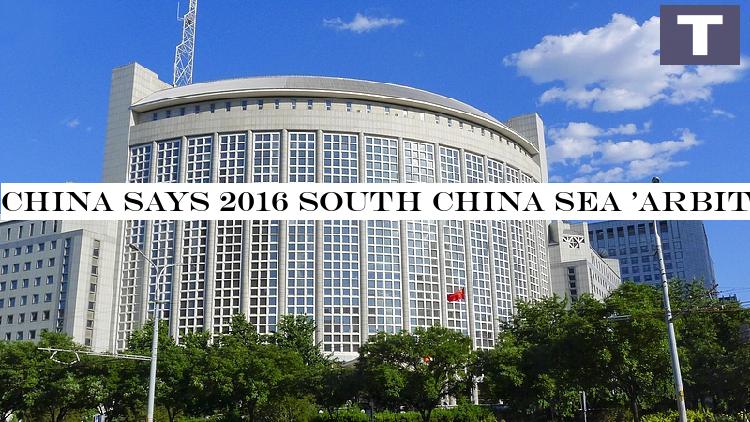INSUBCONTINENT EXCLUSIVE:
The Chinese Foreign Ministry said the "2016 Arbitral Award on the South China Sea" violates the basic principles of international law on
Saturday, which marked the ninth anniversary of the "award."In a statement, spokesperson for the ministry said China's position is
"The 'award' is nothing but a piece of waste paper that is illegal, null and void, and non-binding."China neither accepts nor recognizes the
"award," and will never accept any claim or action arising from the award, read the statement.China's territorial sovereignty and maritime
rights and interests in the South China Sea will not be affected by the "award" in any way, it added.Violating intl lawThe "award" violates
the basic principles of international law, said the spokesperson.Without a thorough exchange of views with China in advance – an essential
prerequisite – the Philippines unilaterally initiated the "arbitration," which violated the common understandings reached between the two
countries to peacefully settle disputes through consultation, said the spokesperson.This violates the article of the Declaration on the
Conduct of Parties in the South China Sea (DOC), which states that the disputes should be resolved by peaceful means through friendly
consultations and negotiations by sovereign states directly concerned, and violates the principle of "pacta sunt servanda," the doctrine of
estoppel, and other basic principles of international law, added the spokesperson.Violating UNCLOSThe spokesperson said the "award" violates
the UN Convention on the Law of the Sea (UNCLOS).Land territorial issues are not regulated by UNCLOS, noted the spokesperson, adding that as
early as 2006, maritime delimitation was clearly excluded by China from "compulsory arbitration" and other procedures.The Philippines
disregarded China's declaration and insisted on initiating the "arbitration," which was an abuse of the UNCLOS dispute settlement mechanism,
said the spokesperson.The "arbitral tribunal in the South China Sea arbitration" handled the case ultra vires, which infringed upon China's
right as a state party to UNCLOS to choose on its own will the means for dispute settlement, according to the spokesperson.The conduct
completely deviates from the purpose of UNCLOS, substantially impairs the integrity and authority of UNCLOS, and seriously impacts the
international rule of law of the sea, said the spokesperson.Many internationally authoritative law experts, including former president of
the International Court of Justice and former judge of the International Tribunal for the Law of the Sea, have pointed out the serious flaws
in the "award," said the spokesperson.Countering South China Sea factsThe spokesperson said the "award" runs counter to the basic facts
related to the South China Sea.The "arbitral tribunal" severely erred in ascertaining facts and applying the law, and the rendered "award"
is fundamentally flawed with obvious mistakes, said the spokesperson.The "award" characterizes Taiping Dao, the largest island in the South
China Sea with an area of 500,000 square meters, as a rock rather than an island, and then concludes that no islands in Nansha Qundao
generate entitlement to exclusive economic zone or continental shelf, which is fully inconsistent with the article of UNCLOS, said the
spokesperson.By this "standard," many countries' claims would be unlawful, and the world's maritime landscape would be changed, added the
spokesperson.China, the spokesperson said, is committed to the peaceful settlement of disputes with other countries concerned through
negotiation and consultation, joint efforts with ASEAN countries to fully and effectively implement the DOC, adoption of a Code of Conduct
as early as possible, and robust institutional safeguards for peace and stability in the South China Sea."We urge relevant countries to stop
making reference to this illegal 'award,' still less making infringement and provocation," said the spokesperson
"This counterproductive move will only end up backfiring."

